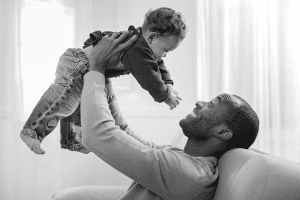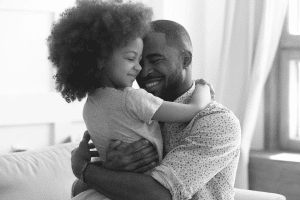Morriston Child Custody
Even when the parents are not in a relationship anymore, it is the children’s right to still have meaningful connections with both of their parents. And at Trinity Family Law, it is our goal to provide legal assistance that will help you achieve a fair Spring Hill child custody arrangement for your child’s best interests.
Although the presence of an attorney is not an actual requirement in Florida child custody cases, our lawyer’s thorough knowledge of the state’s family law can lead to a smoother legal process and better outcome. We will expertly advocate on your behalf, ensuring that all requirements are satisfied and that your case is compellingly presented before the judge.
Whether you are going through a contentious divorce, trying to establish your right as a parent to a child born out of wedlock, or fighting for a change in the existing child custody arrangement, Trinity Family Law can help secure your right to spend time with your children and have a voice in their lives, especially when it comes to major life decisions.
Talk to our expert child custody lawyers today and discuss the best way to still fulfill your parental responsibilities despite a failed relationship.
Call Trinity Family Law today at (352) 292-1703 for your Free Consultation with a Morriston Child Custody lawyer!
Morriston Child Custody Laws
In Florida, child custody laws recognize the importance of having frequent, consistent contact with both parents for the child’s overall development. So at the beginning of every child custody case, no parent starts with an advantage, but both will rather have equal rights to the custody of their children.
Child custody battles can be settled either through mediation or court trial. Either way, the judge will conduct a final evaluation of the presented parenting plan and ensure that it’s in the child’s best interests. The judge will then issue a final parenting plan that will specify the timesharing schedules and decision-making authorities of both parents.
Parenting Time or Timesharing Schedules
Based on the specific facts in your case, the judge will decide the parents’ timesharing schedules, which will include your visitation and custody schedule. A lot of cases can easily give parents practically equal amounts of parenting time, which other states might refer to as “joint custody.”
However, the judge can also award more time to one parent, which is sometimes called “sole custody” or “majority timesharing.” The judge can also order supervised timesharing if the child’s safety is a concern. And if evidence of domestic violence, child abuse, abandonment, or neglect is found, the court may strip the parent of their timesharing and visitation rights.
Parental Responsibility or Decision-making Authority
Aside from the time each parent gets to spend with their children, another important aspect that will be decided in a child custody case is the decision-making power that each parent holds when it comes to the life of their child. This includes deciding on their child’s behalf when it comes to medical, educational, religious, and legal matters.
As much as possible, Florida custody laws will favor shared parental responsibility. However, the judge can always award sole decision-making power to one parent if joint parental responsibility won’t be best for the child’s well-being.
Additionally, even with shared parental responsibility, one parent will be named as the primary or custodial parent while the other will be the secondary or noncustodial parent. The custodial parent usually has more parenting time and will also have the final say when it comes to decisions that both parents can’t agree on.
If you want to know more about how child custody law works in Florida or what’s the more likely outcome in your specific case, talk to our Morriston child custody lawyer now. We will be your expert advocate in establishing your custodial rights to your children and help you maintain this connection by helping enforce the approved child custody arrangements.
Determining Child Custody
Parenting Plans in Florida
For every Florida child custody case, each parent is required to submit their proposed parenting plan, where timesharing schedules and parental responsibilities will be detailed. If the parents can’t agree, the judge will make the final terms of the parenting plan. If, however, you have already reached a settlement agreement with the other parent, you can submit one parenting plan and wait for the court’s approval.

- Proposed shared responsibilities in daily parenting tasks
- Proposed timesharing schedules
- Designated school and addresses for other child activities
- Communication plan between parents with regard to their child
- Designated parent for health care and school-related responsibilities
Factors in Determining Morriston, FL Child Custody
Keep in mind, though, that the primary goal of the judge is to issue a child custody order or parenting plan that will best benefit the child or children involved. The court will carefully evaluate every relevant detail before deciding what custody arrangement will best meet the child’s needs and aid in their overall development.
The factors that the judge will consider when deciding on a child custody order include the following:
- Each parent’s willingness and ability to meet the child’s needs
- Each parent’s willingness to create a meaningful connection with the child and foster a relationship with the other parent for the child’s sake
- Each parent’s physical and mental state
- Each parent’s moral fitness
- Each parent demonstrated the capacity and disposition to get involved in the child’s school and extracurricular activities.
- Each parent’s ability to give a consistent routine to the child
- Each parent’s ability to provide the child with a safe and stable environment
- Each parent’s ability and willingness to act upon the child’s needs before their own needs and desires
- The reasonable preference of the child (if they are of sufficient age and understanding)
- Home, school, and community records and adjustments of the child
- The child’s developmental age, needs, and abilities
- Evidence of domestic violence, child abuse, abandonment, or neglect (if any)
There are other facts that the judge may consider upon finalizing the child custody order. For more thorough guidelines on what matters in achieving the best custody arrangement that best caters to your child’s well-being, don’t hesitate to talk to our expert family lawyers. We are ready to represent you before the court and ensure that your child will grow up with the appropriate, healthy connections with both of their parents.
Custody Modification & Enforcement
After the child custody order is finalized by the court, both parents are required to follow all the specified terms until the order is changed or the youngest child covered by the custody order reaches legal age (18). However, changes in the lives of either parents or children are inevitable after the child custody order is issued. So if there’s a significant change in the lives of the involved individuals or many years have already passed, you may file a custody modification request before the court.
Our child custody lawyers at Trinity Family Law can help you file the request and ensure that we can prove the need to change the custody terms for the children’s best interests. The cause of modification should be significant and reasonable, warranting a change in order to better address the current needs of the children in question. There are three main reasons for a judge to consider modifying a child custody order, which are:
Both parents agree to modify the child custody arrangements.
An uncontested request for a modification is the easiest way to get a court order for a change in custody arrangements. If you and the other parent agree on modified terms, each of you can talk to your lawyers to help draft a new parenting plan before requesting the judge’s approval.
An injunction for protection against domestic violence was filed against a parent.
If the other parent committed any act of domestic violence against your child, yourself, or both of you, which then led to a police arrest or filing for a protective order, you can be given emergency relief and awarded sole custody until the injunction is lifted. This will also lead to major custody modifications, such as lost timesharing and visitation rights for the abusive parent.
There has been a substantial change in circumstances.
This change should be unanticipated and significant enough that it affects the ability of the parent to provide the parental responsibilities originally stated in the child custody arrangement. Examples of these changes are major illnesses/injuries, the development of an addiction, criminal conviction resulting in long-term incarceration, repeated arrests for DUI while the child is in the vehicle, proven child abuse, and the death of the parent.
If you think that a modification is needed to the existing parenting plan, don’t hesitate to ask Trinity Family Law for help. We’ll guide you through all the necessary legal procedures and ensure that appropriate changes are made to better attend to your child’s needs.
Let’s Talk Now – Free Consultation
Even after divorce or not actually being married to your child’s other parent, it’s important to put your child’s needs before your own. This includes working on achieving a child custody arrangement whose terms benefit the development and well-being of your child the most.
So whether you want to establish, modify, or enforce a court-ordered parenting plan, our child custody lawyers at Trinity Family Law are always ready to provide legal assistance that can make the entire process easier to navigate.
Call Trinity Family Law today at (352) 292-1703 for your Free Consultation with a Morriston Child Custody lawyer!




